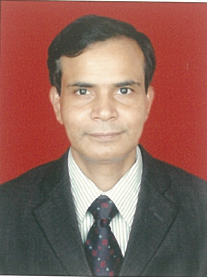- June 30, 2015
- Posted by: kunalsabnis
- Category:BLOG, In Conversation With
 Nirakar Pradhan CFA has worked for over 30 years in Banking, Treasury and Investments both in India and abroad. As Chief Investment Officer (CIO), he has been heading the investment department at Future Generali India Life Insurance for the last seven years. Previously, Nirakar worked with State Bank of India (SBI) for 25 years including 5 years at SBI Frankfurt, Germany.
Nirakar Pradhan CFA has worked for over 30 years in Banking, Treasury and Investments both in India and abroad. As Chief Investment Officer (CIO), he has been heading the investment department at Future Generali India Life Insurance for the last seven years. Previously, Nirakar worked with State Bank of India (SBI) for 25 years including 5 years at SBI Frankfurt, Germany.
How do you view the fund management industry with regards to scope, growth and job prospects? How can CFA candidates take advantage of it?
Investment industry in India is at a crossroad. With world leading growth, favourable demographics and stable political regime, India is expected to become the next economic powerhouse. Indian capital markets would contribute significantly to this transformation. With favourable regulation and increasing use of technology, our markets have become open and accessible to ever increasing market participants both domestic and globally. Higher participation has led to better depth and breadth of both equity and bond markets.
In this phase of capital market evolution, I believe CFA candidates/ charter holders are well placed to take advantage of immense opportunities and contribute to growth of investment industry.
How did CFA help in enhancing your career objectives?
CFA charter has helped me widen and deepen my investment knowledge. This in turn helps me in optimizing portfolio performance. Also, I have been able to build relationship with fellow CFA Society members hailing from a wide range of professional background. These factors have contributed tremendously in my professional success, both in my current and previous assignments.
How would you rate the CFA course with respect to content and structure, including pros and cons? Also include aspects which give CFA course an edge over other courses.
CFA course content and structure has the objective to develop a well-rounded investment professional. It not only emphasizes on creating value for investors by generating better risk adjusted return but also inculcates the importance of ethical approach in investment via Code of Ethics and Global Investment Performance Standards (GIPS).
Completion of all three levels of CFA examination requires in-depth understanding, commitment to excel and disciplined study by the candidate over a period of two to three years during the tenure of the course. Also, CFA Institute is proactive enough to include any latest development affecting the financial world in the curriculum immediately so that candidates are exposed to these developments. I believe all these above aspects make CFA course unique and desirable for candidates.
What guidance you would give to CFA aspirants?
CFA has set the best standards and practices in the investment field across the globe. It certainly helps in professional development and opens up better career opportunities in finance and investment world.
However, one needs to have a focused approach while preparing for the course. Candidate must be very thorough in understanding the subjects and their application in real world. CFA teaches that while managing others’ money one needs to be ethical and responsible. Every candidate must inculcate this approach inside them. Most importantly, preparing for CFA exams should not be considered as a mode only to clear the exams. Rather, CFA charter should be considered as a strategy for continuous learning towards personal and professional development.
Points noted above are personal views and not made on behalf of the employer organisation or on behalf of IAIP.
A part of Newsletter – June 2015
